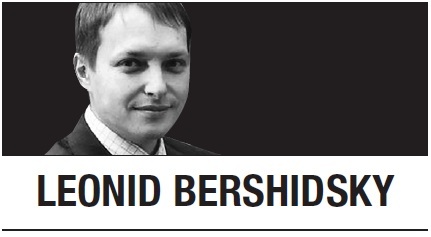
On Monday, the US State Department called on Russia to release “more than 150” political and religious prisoners. In this political climate, an appeal like that from the US would usually be the best way to ensure they remain behind bars. But the State Department may have picked a good moment: President Vladimir Putin could show largesse by pardoning the prisoners while the eyes of the world are on Russia and the World Cup.
The Russian human rights group Memorial, which maintains the most complete roster of Russian prisoners of conscience, published an updated version of its list on June 14, when the first World Cup game was played in Moscow. “Soccer is a game played by fair rules,” the group said. “It’s impossible to play fair while disrespecting human rights, fighting dissidence and tossing opponents behind bars.”
The list includes 108 people who have been imprisoned for their religious beliefs: Muslims convicted of terrorism without any evidence of real or intended violence, and Jehovah’s Witnesses and Scientologists imprisoned after their churches were banned in Russia. The remaining 50 are in prison for supporting various political causes, notably opposition to the war in Ukraine. This group includes Oleg Sentsov, probably the best-known political prisoner in Russia. The Ukrainian movie director is serving a 20-year sentence for allegedly setting fire to the Crimea office of the pro-Putin United Russia party and planning to blow up a statue of Lenin. His case has been widely interpreted as a warning to other loyal Ukrainians in Crimea not to protest the peninsula’s annexation.
There are also Crimean Tatars who rallied against the takeover, bloggers convicted for criticizing Russia’s intervention in Syria and the authorities in general, people accused of beating up riot police at rallies (who were most often beaten up themselves), Russian nationalists for whom the Putin regime isn’t Russian enough, and those pesky human rights activists.
There could be hope. Putin has been willing to release an imprisoned opponent in conjunction with a major sporting event once before. In December 2013, just before the 2014 Sochi Olympics, he pardoned oil billionaire Mikhail Khodorkovsky, who had spent 10 years in confinement, ostensibly for tax fraud. His biggest crime, however, had been funding opposition parties and challenging Putin on policy issues.
When he pardoned Khodorkovsky, Putin spoke of the billionaire’s gravely ill mother, and made no mention of the Olympics. But his motivation was obvious: A goodwill gesture toward the West could only further his goal of making the games a showcase for his version of Russia.
A lot has happened since then. Relations between Russia and the West have deteriorated. Putin seems to believe that the US planned a coup in Ukraine while he was preoccupied with the Sochi Games, forcing him to respond by annexing Crimea to preserve the Russian naval base there.
All but a handful of Russia’s current religious and political prisoners have been jailed since 2014. Most are victims of the increasingly intense climate of intolerance that Putin has created in recent years. He has no intention of loosening the screws during his fourth term.
Yet it’s been three years since Russia had any kind of amnesty. Under Putin, they were usually decreed every couple of years. He was asked last year to declare an amnesty after his inevitable reelection in March. He promised to think about it, but then declined, possibly because of concerns about World Cup security.
A limited amnesty that would free the political prisoners, none of whom are even a little dangerous, would help Putin dispel the moral concerns of some people in the West about the World Cup being held in Russia. It would also create a precedent for FIFA, soccer’s global governing body, to request similar moves from other authoritarian countries that almost certainly will host the tournament in the future.
Sentsov’s family asked Putin to free him before the World Cup to end the hunger strike the imprisoned director began in mid-May. Putin has refused, insisting the Ukrainian had been convicted for plotting a terror attack in which “specific people could have been hurt.” He may be holding out for a prisoner exchange with Ukraine, which would be a public relations coup.
Putin is missing a chance to make the World Cup more than just a well-organized sports event. If his goal, at least to some extent, is to normalize his regime, there’s still time to release the prisoners and clear Memorial’s list.
Leonid Bershidsky
Leonid Bershidsky is a Bloomberg Opinion columnist covering European politics and business. -- Ed.
(Bloomberg)








![[Today’s K-pop] Blackpink’s Jennie, Lisa invited to Coachella as solo acts](http://res.heraldm.com/phpwas/restmb_idxmake.php?idx=644&simg=/content/image/2024/11/21/20241121050099_0.jpg)